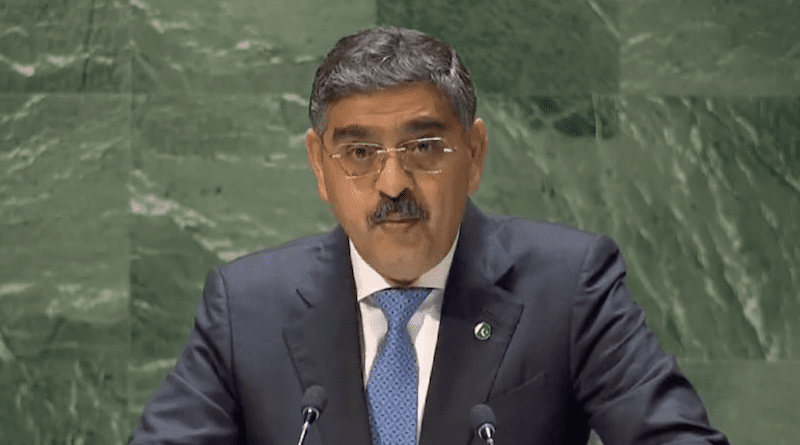The Pakistani Caretaker Government’s Limited Authority To Deport Afghan Refugees – OpEd
By Najib Azad
The Pakistani caretaker government plays a crucial role in ensuring free and fair elections during the transitional period between the dissolution of the National Assembly or provincial assembly and the establishment a fresh government. However, it is important to recognize that the caretaker government’s authority is limited to routine, non-controversial, and urgent matters. This article explores why the Pakistani caretaker government does not have the authority to deport refugees.
1. The Purpose and Function of the Caretaker Government
The caretaker government in Pakistan was introduced in 1985 to ensure the fairness and transparency of elections. As outlined in the 1973 Constitution and the Elections Act of 2017, its primary objective is to guarantee elections characterized by openness, equity, and clarity. The interim government is responsible for overseeing an electoral process that is just and unbiased, including preventing fraudulent activities and verifying the accuracy of voter registries.
2. The Authority of the Caretaker Government
The authority of the caretaker government is derived from the Constitution of Pakistan, which emphasizes that sovereignty belongs to God and that the people of Pakistan must exercise the authority within the limits prescribed by Him. The Constitution further states that the will of the people is to establish an order in which the state exercises its powers and authority through its elected representatives.
Under Article 4 of the Constitution, every functionary of the state must act according to the law. This means that the caretaker government, as a temporary entity that is not an elected body, must adhere to the legal framework and act within the boundaries set by the Constitution.
3. The Role of the Election Commission
The Election Commission of Pakistan (ECP) is responsible for organizing and conducting elections in accordance with the law. Under Article 218(3) of the Constitution, the ECP must take all necessary steps to ensure that elections are conducted honestly, justly, fairly, and in accordance with the law while guarding against corrupt practices.
Furthermore, Article 219(d) stipulates that the ECP’s foremost duty is to hold general elections to the National Assembly and Provincial Assemblies. This places a significant responsibility on the ECP to ensure the smooth functioning of the electoral process.
4. Limitations on the Caretaker Government’s Authority
The caretaker government’s authority is clearly defined in Chapter XIV of the Elections Act 2017. According to this legislation, the caretaker government is required to perform day-to-day functions necessary to run the affairs of the government, assist the Election Commission in holding elections, and restrict itself to routine, non-controversial, and urgent matters in the public interest.
The recent decision by the caretaker government to deport Afghan refugees has sparked widespread controversy and condemnation from various political parties, movements, and civil societies. Prominent parties, movements, and groups such as the Pashtunkwa Meli Awami Party, Awami National Party, National Democratic Movement, Pashtun Tahfuz Movement (PTM), and many others have joined forces with hundreds of thousands of social activists in KPK and Baluchistan provinces to protest against this decision. These protests have been ongoing for approximately two weeks, highlighting the strong opposition to the deportation of Afghan refugees.
The caretaker government is explicitly prohibited from making major policy decisions, entering into major contracts or undertakings detrimental to the public interest, engaging in major international negotiations, making promotions or major appointments of public officials, and attempting to influence or adversely affect free and fair elections.
5. Implications for Afghan Refugees
Given the limited authority of the caretaker government, it does not have the power to unilaterally decide on matters such as the repatriation of Afghan refugees. The issue of Afghan refugees falls under the purview of the elected government, which has the mandate to make major policy decisions and engage in international negotiations.
The caretaker government’s role is to ensure the smooth functioning of the government during the transitional period, not to make far-reaching decisions that may have long-term implications. Therefore, any decision regarding the repatriation of Afghan refugees should be made by the elected government after due consideration of the humanitarian, legal, and geopolitical factors involved.
Conclusion
In conclusion, the Pakistani caretaker government’s authority is limited to routine, non-controversial, and urgent matters necessary to run the affairs of the government during the transitional period. The repatriation of Afghan refugees is a complex issue that falls under the jurisdiction of the elected government, which has the mandate to make major policy decisions and engage in international negotiations. It is essential to uphold the principles of fairness, transparency, and respect for the rule of law in addressing the challenges posed by the presence of Afghan refugees in Pakistan.
This demonstrates that Anwaar-ul-Haq Kakar, the caretaker prime minister of Pakistan, lacks the necessary qualifications for his role and has a limited understanding of his responsibilities, the governing bodies, and the constitutional boundaries.

